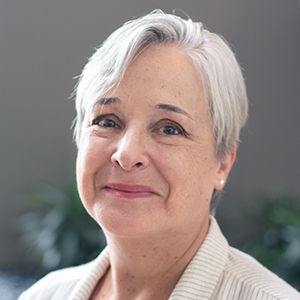Wellness, again
A year ago, we requested submissions for our first wellness issue. We knew wellness was an important topic — whether for stressed-out grad students, overworked postdocs or PIs facing burnout — but we didn’t know what kind of response we’d get.
The results surpassed our expectations: everything from deeply personal essays to step-by-step guidance and practical tools. Here’s the end of my editor’s note for that January 2019 issue:
“Have we covered all the bases? Absolutely not. But if you find this issue useful, thought-provoking or even inspiring, let us know. … I’d be happy to do this again in January 2020.”
January 2020 is right around the corner, and yes, we’re going to do it again. We have more bases to cover. We invite you to pitch in.
What do you do for your body and/or mind? What should institutions and employers be doing to promote wellness? What works? What doesn’t — and why?
We did a lightning round in a recent staff meeting; here are some suggestions:
Your own program
What activities help you stay well? Have you gotten into yoga or tai chi? Do you have specific eating or sleeping rituals?
It’s not just physical. How do you care for your mind and spirit? Do you make time for faith, family, pets or community service? What do your practices look and feel like? Why do they work for you?
Many scientists in the U.S. come from other countries, some with their own fraught politics, and face difficulties getting and staying here. If this describes you, how do you stay well? What role does your community play?
For many, pursuit of a Ph.D. is not all smooth sailing. Do you suffer PTSD from working in a toxic lab? How do you prevent yourself from carrying those feelings to another lab?
Workplace programs
The National Institutes of Health offers a menu of fitness and wellness programs from personal training to golf teams. Some employers offer gym membership discounts. Universities build gleaming fitness centers. What does your employer or institution do to encourage wellness? Is it a model for others? Could the program be improved?
Institutional or employer policies also affect mental wellness — not just by providing crisis counseling (though we’re interested in that) but also by establishing basic policies to support workers.
For instance, time off. Have you had to negotiate with an adviser or supervisor for a much-needed vacation? What was your strategy? Have you ever added a vacation to a conference trip? How did that work out?
Then there’s child care. If you’re a parent, what kind of support do you get? Does your institution pay for child care when you go to conferences? What’s the effect of such policies?
And we love to geek out, so we want to hear about wellness-related research. For instance, if you study the microbiome, what changes do you see when people adjust their daily habits? Or maybe you work on cannabidiol oil or acai berries or some other natural product. What’s the biochemistry?
We have a million questions — and we’re looking to you for answers. Not every submission has to be 100% serious. We’re interested in failures and foibles too. (I, for one, will never do a yoga headstand.)
Deadline for submissions is Oct. 15. Click here for details.
Enjoy reading ASBMB Today?
Become a member to receive the print edition four times a year and the digital edition monthly.
Learn moreGet the latest from ASBMB Today
Enter your email address, and we’ll send you a weekly email with recent articles, interviews and more.
Latest in Opinions
Opinions highlights or most popular articles

Women’s health cannot leave rare diseases behind
A physician living with lymphangioleiomyomatosis and a basic scientist explain why patient-driven, trial-ready research is essential to turning momentum into meaningful progress.

Making my spicy brain work for me
Researcher Reid Blanchett reflects on her journey navigating mental health struggles through graduate school. She found a new path in bioinformatics, proving that science can be flexible, forgiving and full of second chances.

The tortoise wins: How slowing down saved my Ph.D.
Graduate student Amy Bounds reflects on how slowing down in the lab not only improved her relationship with work but also made her a more productive scientist.

How pediatric cataracts shaped my scientific journey
Undergraduate student Grace Jones shares how she transformed her childhood cataract diagnosis into a scientific purpose. She explores how biochemistry can bring a clearer vision to others, and how personal history can shape discovery.

Debugging my code and teaching with ChatGPT
AI tools like ChatGPT have changed the way an assistant professor teaches and does research. But, he asserts that real growth still comes from struggle, and educators must help students use AI wisely — as scaffolds, not shortcuts.

AI in the lab: The power of smarter questions
An assistant professor discusses AI's evolution from a buzzword to a trusted research partner. It helps streamline reviews, troubleshoot code, save time and spark ideas, but its success relies on combining AI with expertise and critical thinking.

